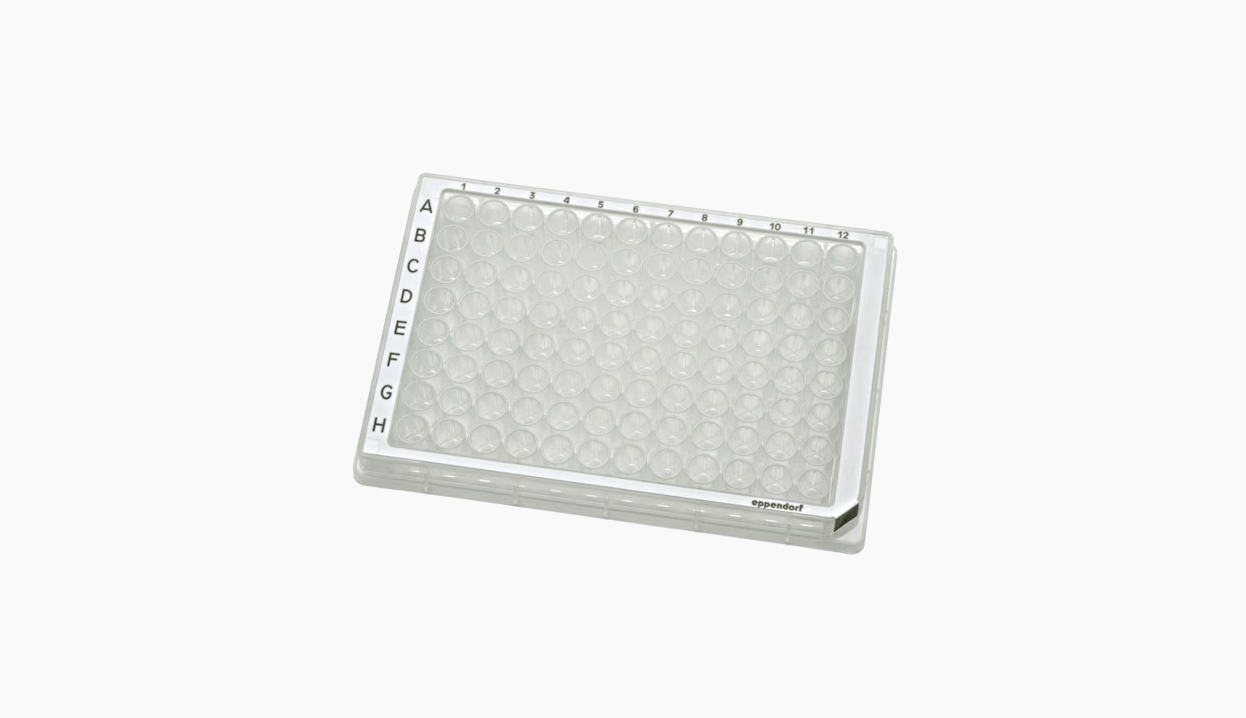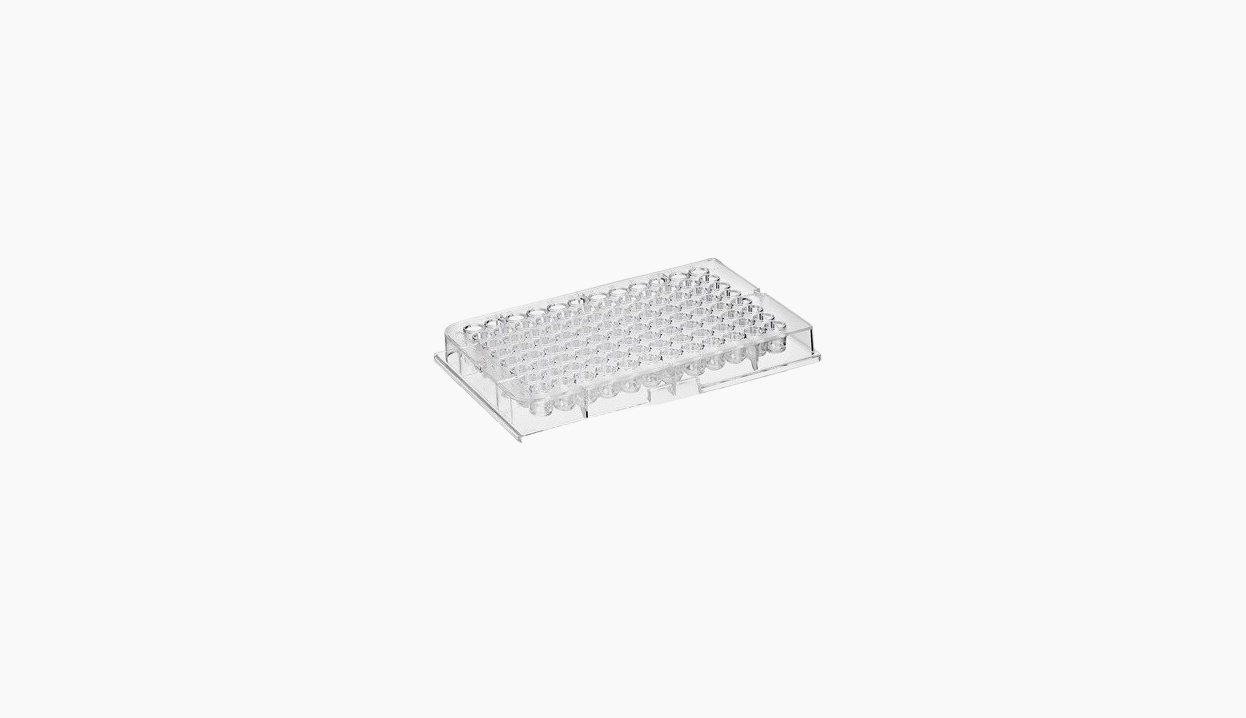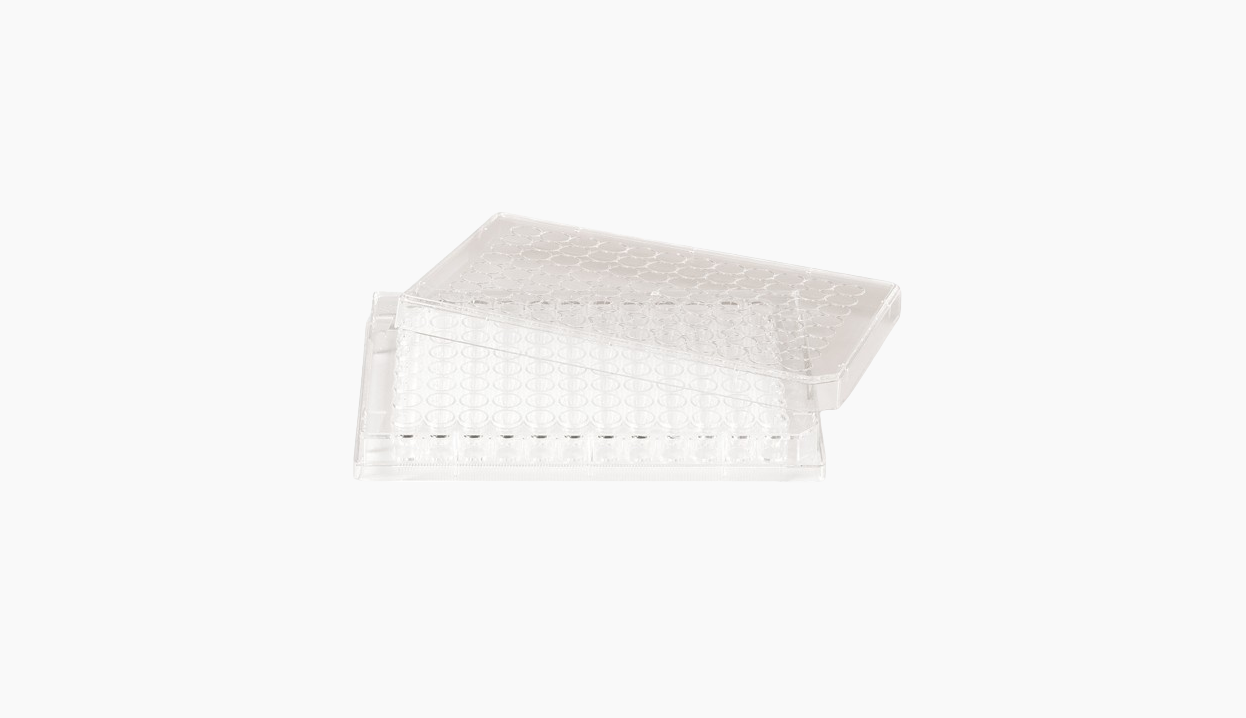- Home
- Consumables
- Plastic for general use
- Microplates
Microplates
Eppendorf microplates
Eppendorf microplates are designed with an easy-to-read alphanumeric OptiTrack® matrix to identify individual wells, speed up the filling process and significantly reduce the risk of pipetting errors. Eppendorf microplates are made of highly transparent polypropylene for quick and easy identification of sample locations. Eppendorf DNA and Protein LoBind® versions are also available for maximum sample preservation.
Main features of Eppendorf microplates:
- 96-well and 384-well formats;
- F - bottom (flat), U - bottom (round) and V - bottom (conical);
- PCR purity or sterile;
- Exceptional centrifugation stability up to 6,000 x g;
- The raised edges of the wells and a smooth surface ensure reliable thermal sealing;
- High-quality polypropylene guarantees resistance to chemicals, mechanical effects and extreme temperatures;
- Autoclavable (121 °C, 20 min.);
- Functionality ensured from -86 °C to 100 °C;
- Made without slip agents, plasticizers or biocides, substances that can have a negative effect on biological tests.
Main areas of use: sample storage and preparation, studies requiring high temperature or solvent resistance, screening of active substances, storage of cDNA or genome banks, protein analysis, genotyping, storage of siRNA or oligonucleotide libraries, preparation of tissue and plant lysates.

Nerbe plus microplates
Main features of Nerbe plus microplates:
- 96 wells;
- Made of PS or PP;
- F - bottom (flat), U - bottom (round) and V - bottom (conical);
- Sterile or non-sterile;
- Centrifugation stability up to 4500 x g (PS), up to 4000 x g (PP);
- Not autoclavable.
Main areas of use: for sample storage and preparation.





-9477144ce2f2a4410eeffe69afaa3925.png)

-a87347b4827e7cb000efa099b8c3ccff.png)






























